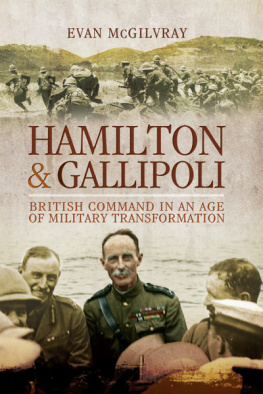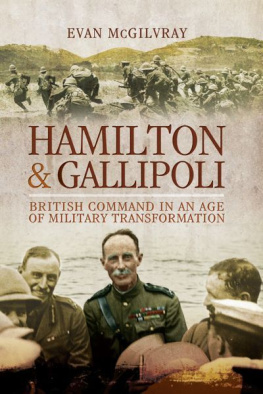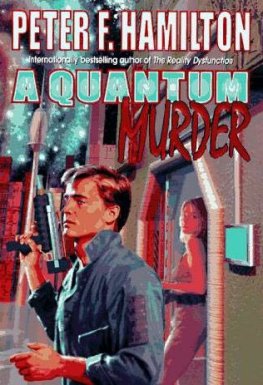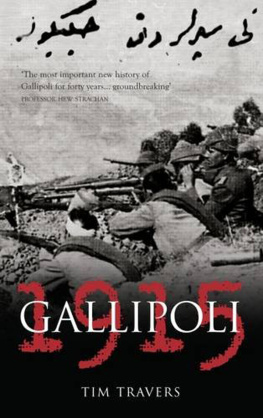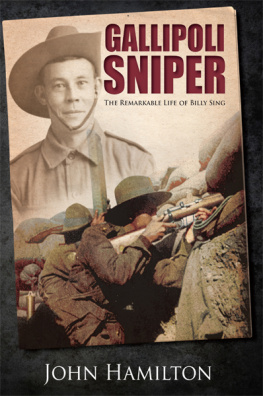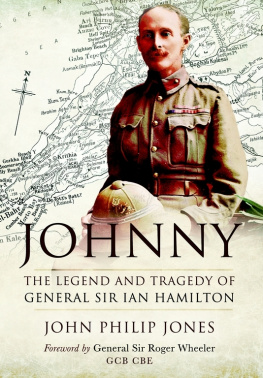Dedication
If nothing else pause and consider the unnecessary death of Second Lieutenant D.A. Addams-Williams, 4th South Wales Borderers, aged 19, leading his troops into battle at Chocolate Hill (Yilchin Burnu) 11 August 1915.
First published in Great Britain in 2015 by
Pen & Sword Military
an imprint of
Pen & Sword Books Ltd
47 Church Street
Barnsley
South Yorkshire
S70 2AS
Copyright Evan McGilvray 2015
ISBN: 978 1 78159 076 8
EPUB ISBN: 978 1 47385 493 2
PRC ISBN: 978 1 47385 499 4
The right of Evan McGilvray to be identified as the Author of this
Work has been asserted by him in accordance with the Copyright,
Designs and Patents Act 1988.
A CIP catalogue record for this book is available from the British
Library
All rights reserved. No part of this book may be reproduced or
transmitted in any form or by any means, electronic or mechanical
including photocopying, recording or by any information storage and
retrieval system, without permission from the Publisher in writing.
Typeset in Ehrhardt by
Mac Style Ltd, Bridlington, East Yorkshire
Printed and bound in the UK by CPI Group (UK) Ltd,
Croydon, CRO 4YY
Pen & Sword Books Ltd incorporates the imprints of Pen & Sword
Archaeology, Atlas, Aviation, Battleground, Discovery, Family
History, History, Maritime, Military, Naval, Politics, Railways, Select,
Transport, True Crime, and Fiction, Frontline Books, Leo Cooper,
Praetorian Press, Seaforth Publishing and Wharncliffe.
For a complete list of Pen & Sword titles please contact
PEN & SWORD BOOKS LIMITED
47 Church Street, Barnsley, South Yorkshire, S70 2AS, England
E-mail:
Website: www.pen-and-sword.co.uk
Contents
Acknowledgements
I wish to acknowledge and thank the Trustees of the Liddell Hart Centre for Military Archives for permission to use quotations form their archives.
List of Abbreviations
ADC | Aide-de-Camp |
ANZAC | Australian and New Zealand Army Corps |
C-in-C | Commander-in-Chief |
CIGS | Chief of the Imperial General Staff |
GHQ | General Headquarters |
GOC | General Officer Commanding |
HE | High Explosive |
HQ | Headquarters |
KCB | Knight Commander of the Bath |
MEF | Mediterranean Expeditionary Force |
NATO | North Atlantic Treaty Organization |
NCO | Non Commissioned Officer |
OC | Officer Commanding |
RN | Royal Navy |
RND | Royal Naval Division |
RNVR | Royal Navy Volunteer Reserve |
T.F. | Territorial Force |
UK | United Kingdom |
VD | Venereal Disease |
WO | War Office (UK) |
2 i.c. | Second in Command |
Foreword
T his work concerns a passing era as new men and new ideas replaced what had been seen as traditional values. General Sir Ian Hamilton and his command of the forces at Gallipoli in 1915, the subject of this book, was already outmoded, as was the British Army when it set out to defeat the enemies of the British Empire. Hamilton was totally confident that he would defeat the Turks as he was a gentleman and British; his confidence was misplaced. The world had turned and he was about to become unstuck. To add to his miseries at Gallipoli he was to find that he was outmanoeuvred politically and not only by politicians. Hamiltons frustrations were to be compounded by the political use of the popular media to convince the British general public that failure was the fault of one man and not of the politicians which had sent him poorly prepared for a major offensive. Little has changed since 1915.
I have a few people to thank for their help in the preparation and writing of this work. The biggest debt I owe is to the staff at the Liddle Hart Centre for Military Archives, Kings College, London, notably Diana Manipud, who always ensured that I had material available to work from and Lianne Smith, the Archives Services Manager, who helped greatly with the supply of images for this book. I would also like to thank the staff at Special Collections, Brotherton Library, University of Leeds, for their unfailing help and assistance. Special Collections at Leeds is an underused source and is worthy of greater attention from the academic world. I would also like to thank George Anderson for his map which he produced swiftly and at a modest price.
Evan McGilvray
Leeds, 20 February 2014
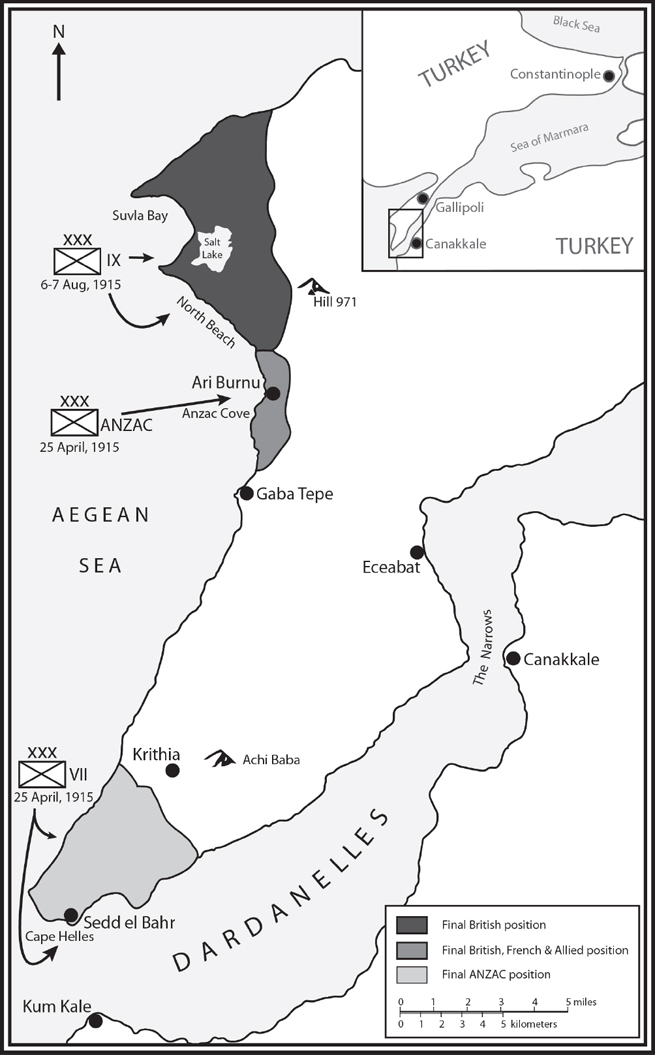
Chapter One
General Sir Ian Hamilton and the British Army, 18531915
G eneral Sir Ian Hamilton was born on 16 January 1853 on the island of Corfu. Today Corfu is a popular holiday destination, but in 1853 it was part of the Union States of the Ionian Islands and a British Protectorate since 1815 and remained so until 1864 when the islands united with Greece. Hamilton was born into a military family with his father serving as a Captain with the 92nd Gordon Highlanders. Ian Hamilton was destined to live long, dying at the age of ninety-four in 1947 and so was to witness to the many changes which occurred during his lifetime. These not only included changes as advances were made in science or in society, but also those which affected his chosen career, that of an officer serving with the British Army. Indeed Hamilton was also to influence some of these changes as the nature of warfare moved rapidly from man and horsepower. Instead of men marching and horses galloping, modern armies at the beginning of the twentieth century began to use motorized vehicles and explore aviation. While scientific developments allowed for more deadly weapons, medical advances saved many soldiers from illnesses and wounds which previously would have killed them.
Hamilton was born shortly before the outbreak of the Crimean War, which was largely fought from horseback in cavalry manoeuvres, including the famous Charge of the Light Brigade. At the Crimea the infantry still used muskets and the artillery continued to fire cannons loaded with cannon balls. By the time of Hamiltons death, military technology had progressed, if that is the right word for the obliteration of two Japanese cities during August 1945 by the Americans using atomic bombs; the first and only example to date of nuclear war.
Between 1853 and 1945 the nature of warfare had altered totally with civilians becoming mass casualties for the first time owing to aerial bombardment. Advances in technology and communications meant that mass armies could be moved around the world reasonably swiftly. This led to world war, protracted battles, chemical warfare and mass casualties as particularly experienced during the First World War. Scientific advances also made genocide possible as the mass slaughter of European Jews by the Nazis during the Second World War using poisonous gas, gas chambers and an efficient rail network was surely the nadir of so-called European civilization.
During Hamiltons life the British Army experienced a great number of reforms in which Hamilton was involved. The first of these reforms began just after the end of the Crimean War which British society considered had been badly conducted and poorly led. The British Army may have been part of the victorious alliance against the Russian Empire, but the senior officers who had commanded the British Army at the Crimea had led it in a manner that was more suited to the Napoleonic Wars, which had been fought forty years earlier. The poor leadership and command of the British Army during the Crimean War meant that before finally achieving victory the British Army had suffered many setbacks and became the object of examination and eventual overhaul where necessary. The situation regarding the Crimean War and its aftermath does not initially affect the Hamilton story, however the question of modernity does run through this work and begins with journalism at the Crimea.
Next page
